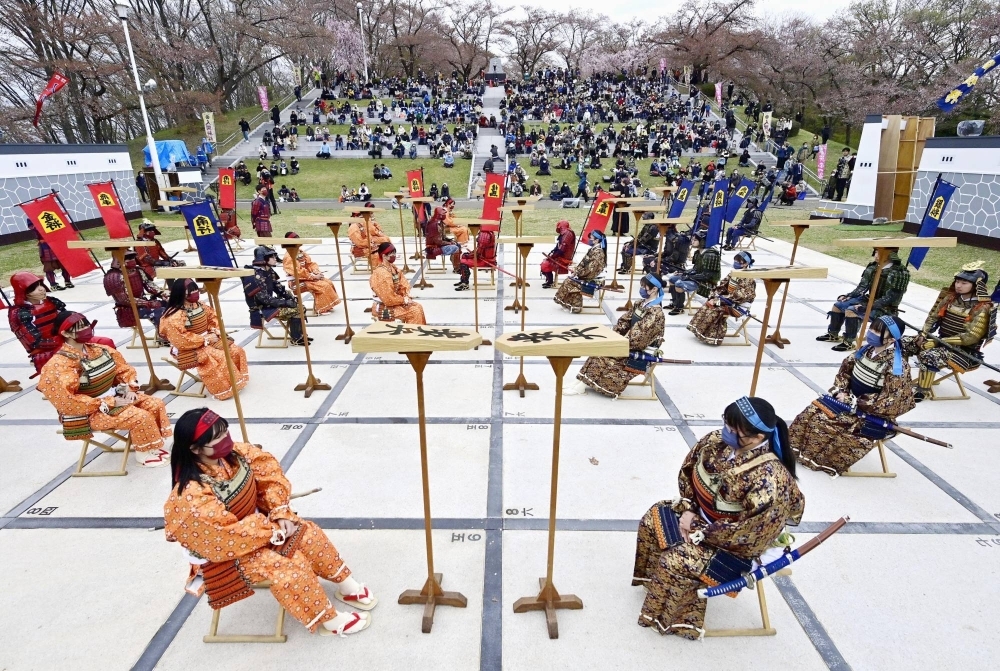Every April since 1956, the city of 天童 (Tendō, Tendo), in Yamagata Prefecture — one of Japan’s so-called 将棋のまち (shōgi no machi, shogi cities) — hosts an event known as 人間将棋 (ningen shōgi, human shogi) as the centerpiece of its 桜祭り (sakura matsuri, cherry blossom festival). 天童 is known as a 将棋のまち because it produces 90% of pieces used for the game.
Locals don samurai 鎧 (yoroi, armor) and 着物 (kimono, kimonos) to represent the 駒 (koma, shogi pieces) on a giant outdoor 将棋盤 (shōgi-ban, shogi board). Professional players engage in matches with these human figures atop Mount Maizuru, surrounded by the 桜 (sakura, cherry blossoms) of around 2,000 trees.
将棋, often described as a Japanese version of chess, isn’t just responsible for contributing to the fun we have during 桜 season, though. It’s also responsible for several turns of phrase that have made it into other parts of the language. The most popular of these might be 王手 (ōte, checkmate), which you may have seen in sports articles that opt for phrases such as 優勝に王手をかける (yūshō ni ōte o kakeru, to make a bid for victory).



